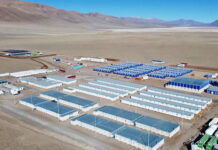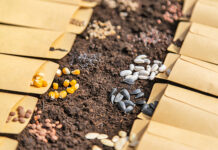BENGALURU (AP) – Unpredictable rains and increasing heat aren’t just making life more difficult for the people of Rayanpet, a village in India’s arid south. They’re also taking a toll on the thousands of acres of rice grown here.
“We used to know when it would rain and for how long and we sowed our seeds accordingly,” said a former soldier P Ravinder Reddy, who turned to farming on his family’s land 16 years ago. “Now it’s so unpredictable and many times the seeds don’t sprout either because there’s too much rain or it’s completely dry.”
Fortunately for Reddy, agricultural research organisations in India have been working for years to engineer rice seeds that can better withstand the vagaries of climate. He’s been experimenting with the new varieties for the past five years, and said they’re giving better yields with less water and are more disease-resistant.
“I have planted them across a quarter of my 25-acre field because there’s still demand for older varieties but I think in a few years, we will use only these tougher seeds,” Reddy said.
India is one of the world’s largest producers and consumers of wheat and rice.
Research organisations here, like their counterparts around the world, have long worked to produce seeds that increase yields, withstand drought or resist plant diseases. It’s a growing need as a changing climate leads to more extreme and unpredictable weather.
According to a United Nations (UN) report released earlier this year, more than 700 million people went hungry last year and over a third of the global population is unable to afford a healthy diet, thus increasing the urgency for resilient seeds that can produce food reliably.
Apart from India, other programmes including a United States government programme and privately funded projects are helping develop climate-resilient crops in Africa, Central America and other Asian countries.
As India is among the countries most vulnerable to climate impacts, these new seeds are essential in ensuring it produces enough food for its people as well as for export.
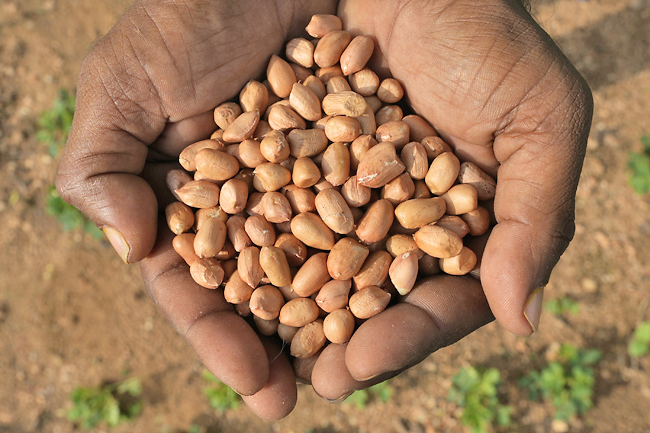
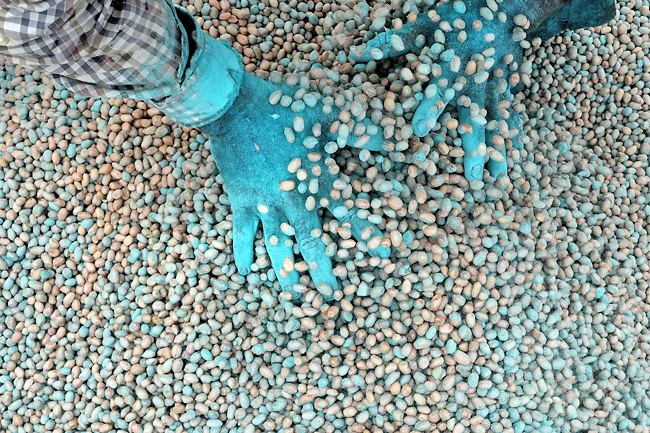
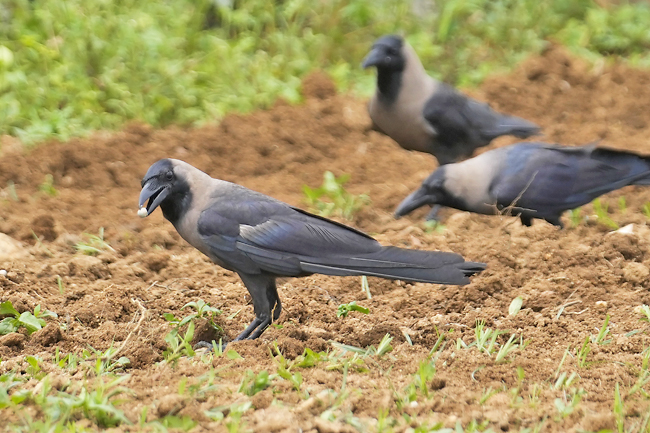
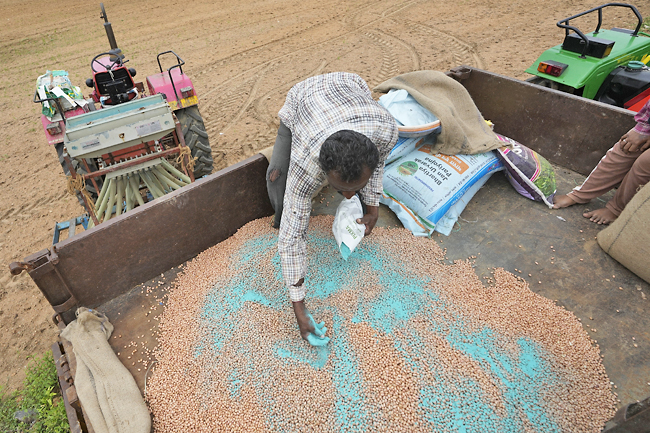
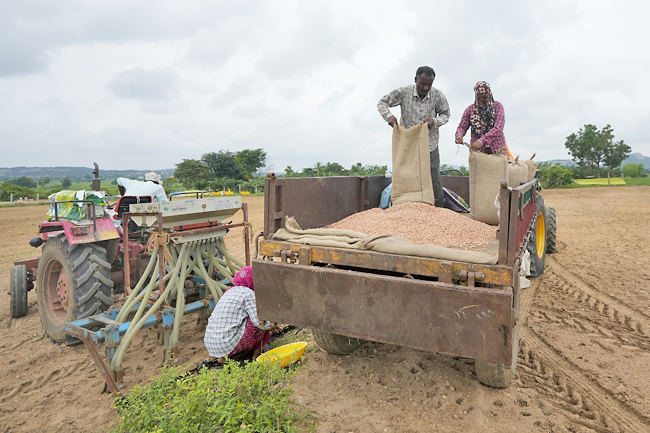
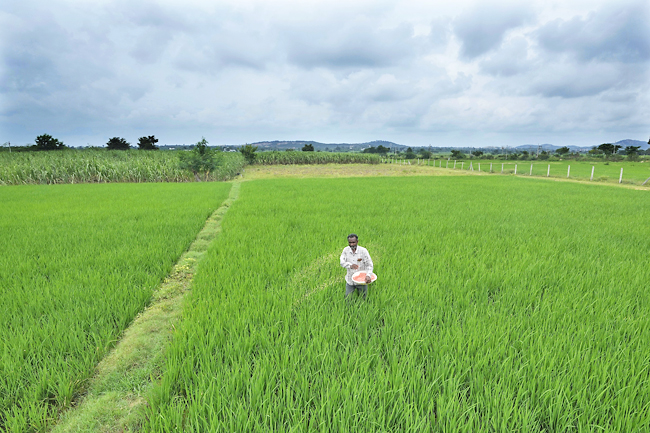
DEFENDING AGAINST CLIMATE SHOCKS
As climate change intensifies, India’s nearly 120 million farmers – most with less than five acres of land – are seeing their livelihoods threatened by erratic rainfall patterns, rising temperatures and increased pest infestations.
Some are taking to what is called natural farming – techniques like using natural fertilisers and planting crops alongside trees and other plants that can protect crops from wind, erosion and some extreme weather – to deal with climate change. But that can mean reduced yields, and India’s federal government is also promoting the use of climate-resilient seeds that don’t compromise yields.
Increasing salinity in groundwater, heavy rainfall over short periods, prolonged droughts and even increasing night-time temperatures can affect rice seeds, experts said.
“We really need these seeds to deal with these multiple issues created by global warming,” said Ashok Kumar Singh, former director of New Delhi-based Indian Agriculture Research Institute and a scientist who specialises in plant genetics and breeding.
Singh has overseen the creation of multiple successful rice varieties to withstand pests and various plant diseases. And his organisation, with funding from the federal agriculture ministry, has released more than 2,000 climate-resilient seed varieties in the last decade.
Earlier this year, Indian Prime Minister Narendra Modi released 109 climate-resilient seeds across crops that included cereals, pulses and oilseeds like peanuts. India’s federal government has announced plans to ensure at least 25 per cent of land tilled for paddy in the country will be sowed with climate-resilient seeds in the coming kharif or winter crop season.
“We are breeding for multiple stressors, including heat and disease resistance,” said Janila Pasupuleti of International Crops Research Institute for the Semi-Arid Tropics, based in Hyderabad. Pasupuleti said that this approach not only stabilises yields but also enhances the nutritional quality of crops, benefiting both farmers and consumers.
LOGISTICAL ISSUES THAT NEED IRONING OUT
Even as scientists are creating climate-resilient seeds regularly, making sure the seeds reach the maximum number of farmers is critical.
Ensuring that farmers know about such seeds, can afford them, and are trained to use them properly is as important as creating the seeds, said Aditi Mukherji, director for climate change adaptation and mitigation at the Consultative Group on International Agricultural Research and an author of several UN climate reports. Mukherji noted that India’s green revolution in agriculture, which took place in the 1960s when agriculture was modernised to ensure food security and increase yields of food grains such as wheat and rice across the country, succeeded because such services were available and well-coordinated by state and federal governments at that time.
Agriculture scientists also say there’s a need for more funding for research and development – equivalent to at least one per cent of the agricultural gross domestic product, said Singh, the agriculture scientist.
In Rayanpet village, Reddy is preparing to sow rice seeds for the winter season in a few weeks, and said he hopes to expand the area that gets the climate-resilient seeds.
“It’s good to keep trying new seeds as after some time all of them will have some issue or the other. If the government can also make sure we get good prices for our crops after harvest, that would help farmers like us a great deal,” he said.

















